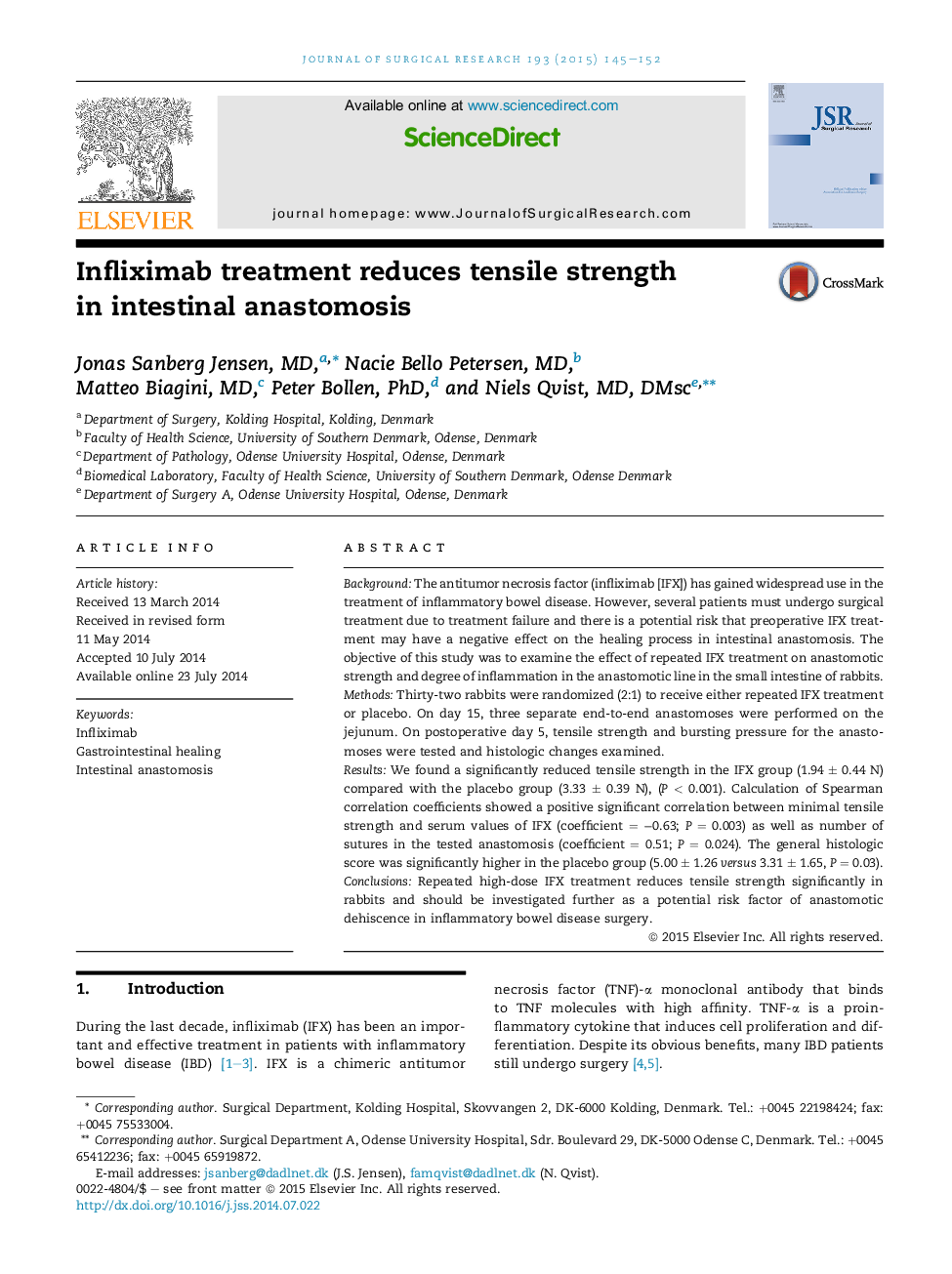| Article ID | Journal | Published Year | Pages | File Type |
|---|---|---|---|---|
| 6253692 | Journal of Surgical Research | 2015 | 8 Pages |
BackgroundThe antitumor necrosis factor (infliximab [IFX]) has gained widespread use in the treatment of inflammatory bowel disease. However, several patients must undergo surgical treatment due to treatment failure and there is a potential risk that preoperative IFX treatment may have a negative effect on the healing process in intestinal anastomosis. The objective of this study was to examine the effect of repeated IFX treatment on anastomotic strength and degree of inflammation in the anastomotic line in the small intestine of rabbits.MethodsThirty-two rabbits were randomized (2:1) to receive either repeated IFX treatment or placebo. On day 15, three separate end-to-end anastomoses were performed on the jejunum. On postoperative day 5, tensile strength and bursting pressure for the anastomoses were tested and histologic changes examined.ResultsWe found a significantly reduced tensile strength in the IFX group (1.94 ± 0.44 N) compared with the placebo group (3.33 ± 0.39 N), (P < 0.001). Calculation of Spearman correlation coefficients showed a positive significant correlation between minimal tensile strength and serum values of IFX (coefficient = â0.63; P = 0.003) as well as number of sutures in the tested anastomosis (coefficient = 0.51; P = 0.024). The general histologic score was significantly higher in the placebo group (5.00 ± 1.26 versus 3.31 ± 1.65, P = 0.03).ConclusionsRepeated high-dose IFX treatment reduces tensile strength significantly in rabbits and should be investigated further as a potential risk factor of anastomotic dehiscence in inflammatory bowel disease surgery.
